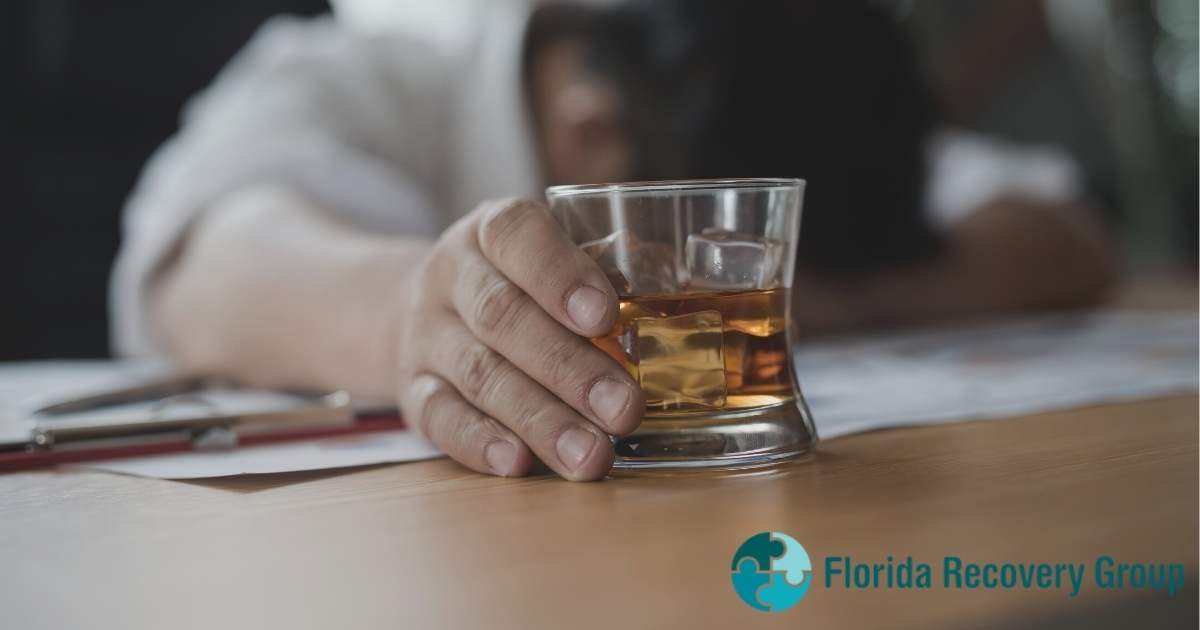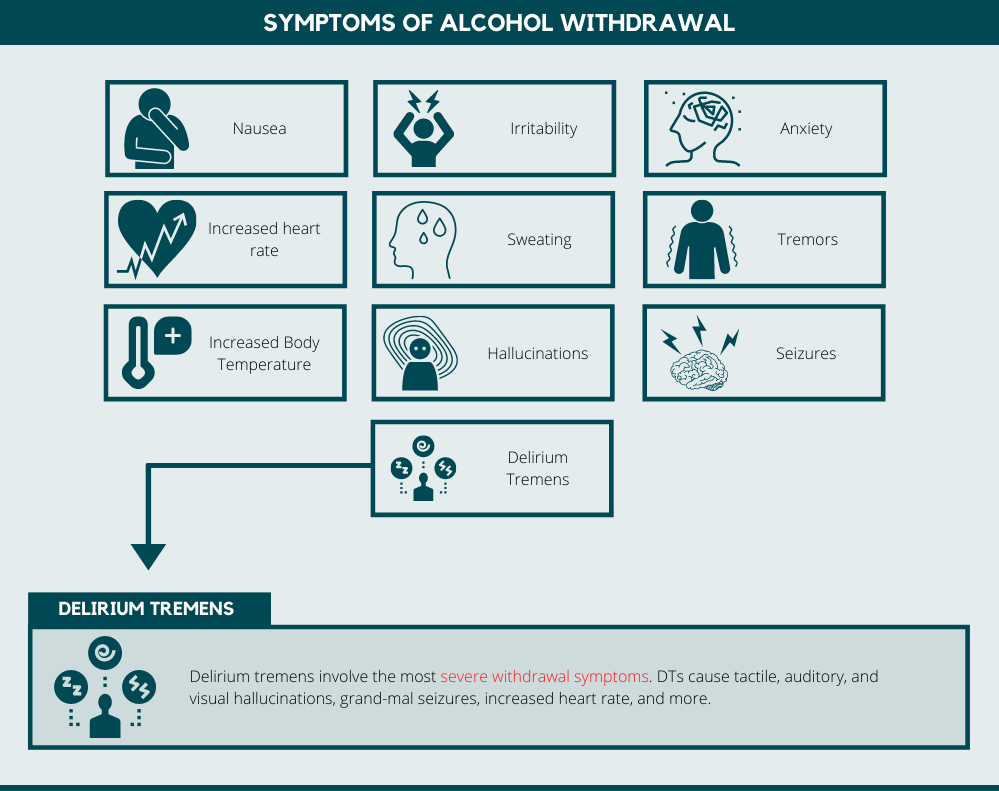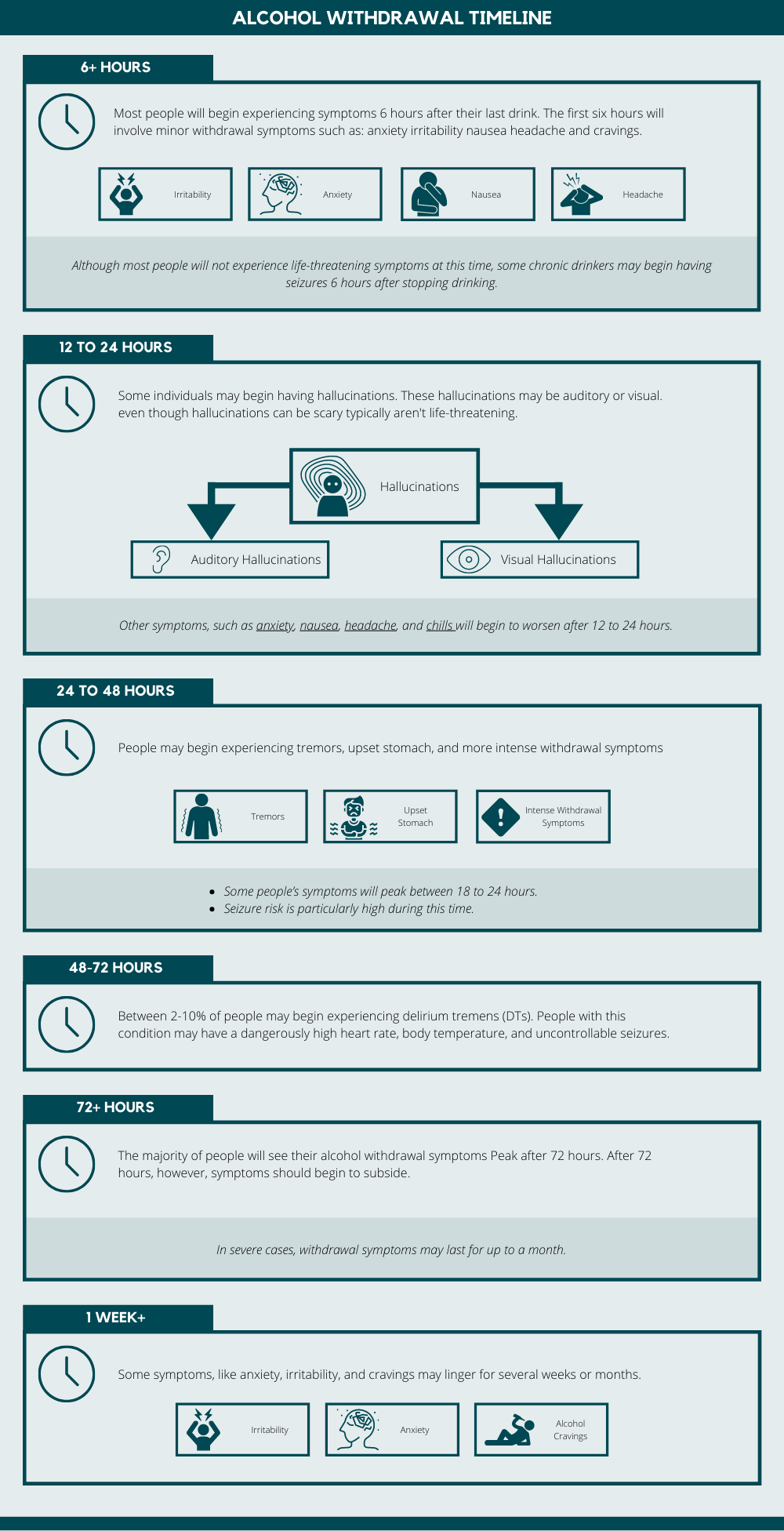
03 Mar Alcohol Withdrawal Timeline: How Long Does Alcohol Detox Take?
Making the decision to stop drinking isn’t an easy decision to make. one of the biggest fears people have when they decide to get sober is that it will be difficult to get through alcohol withdrawal. Fortunately, alcohol detox centers in Delray Beach have the medications and expertise required to keep individuals safe and comfortable throughout the alcohol detox process.
When people finally enroll in a detox program they likely have many questions such as how long does alcohol detox take, what does the alcohol withdrawal timeline look like, and what symptoms should be expected. Here is everything you need to know about alcohol withdrawal.
Alcohol Withdrawal Symptoms and Complications
Alcohol is a central nervous system depressant that produces feelings of relaxation. When abused, the body and brain will become dependent on alcohol so that when a person stops drinking, they experience withdrawal symptoms due to an overactive system.
Since some withdrawal symptoms can be life-threatening, it’s best to go through detox at a medical facility. Doctors can help patients avoid complications and reduce the severity of their withdrawal symptoms.

Symptoms of alcohol withdrawal include:[1]
- Nausea
- Irritability
- Anxiety
- Increased heart rate
- Sweating
- Tremors
- Increased body temperature
- Hallucinations
- Seizures
- Delirium tremens (DTS)
Delirium tremens involve the most severe withdrawal symptoms. DTs cause tactile, auditory, and visual hallucinations, grand-mal seizures, increased heart rate, and more.[2]
These symptoms may be more common in people who have:
- A history of DTs or seizures from alcohol withdrawal
- Poor liver function
- Low sodium, potassium, or platelet counts
- Dehydration
- Older age
- Lesions on the brain
- Addiction to other drugs besides alcohol
People who have any of these risk factors should never attempt to detox alone.
Alcohol Withdrawal Timeline
There are many unique factors that dictate how long it takes to detox from alcohol and how long alcohol stays in a person’s system, including:
- How high a person’s alcohol tolerance is
- How long the person has been drinking
- The amount of alcohol a person is used to drinking
- The person’s age, weight, metabolism, and overall health
- Whether or not the person is addicted to other drugs at the same time
However, the general alcohol withdrawal timeline for an average person can be broken down as follows.

6+ hours: Most people will begin experiencing symptoms 6 hours after their last drink. The first six hours will involve minor withdrawal symptoms such as anxiety irritability nausea headache and cravings. Although most people will not experience life-threatening symptoms at this time, some chronic drinkers may begin having seizures 6 hours after stopping drinking.
12 to 24 hours: Some individuals may begin having hallucinations. These hallucinations may be auditory or visual. even though hallucinations can be scary typically aren’t life-threatening. Other symptoms, such as anxiety, nausea, headache, and chills will begin to worsen after 12 to 24 hours.
24 to 48 hours: People may begin experiencing tremors, upset stomach, and more intense withdrawal symptoms. Some people’s symptoms will peak between 18 to 24 hours. Seizure risk is particularly high during this time.
48-72 hours: Between 2-10% of people may begin experiencing delirium tremens (DTs). People with this condition may have a dangerously high heart rate, body temperature, and uncontrollable seizures.[2]
72+ hours: The majority of people will see their alcohol withdrawal symptoms Peak after 72 hours. After 72 hours, however, symptoms should begin to subside. In severe cases, withdrawal symptoms may last for up to a month.
1 week+: Some symptoms, like anxiety, irritability, and cravings may linger for several weeks or months. A Delray Beach alcohol rehab program can help people cope with these persistent symptoms.
Alcohol Detox Medications
People with minor alcohol use disorder may not need any medications to get through alcohol withdrawal safely. Still, it’s never a good idea to detox outside of a medical facility. As a result people who are dependent on alcohol always detox at a professional addiction detox center.
While in detox, patients are monitored around the clock to prevent severe withdrawal symptoms and potential complications. If needed, doctors may administer certain medications to help reduce the severity of symptoms. These medications may include benzodiazepines, beta-blockers, stomach medications, and mental health meds.[3]
How Long Do People Stay in Detox?
How long a person stays in alcohol detox depends on the severity of their symptoms and their overall health. People who are experiencing severe symptoms may need to stay in detox for up to two weeks. On the other hand, those with minor symptoms may be cleared to leave the detox facility after 3 or 4 days.
In the end how long it takes to detox from alcohol is different from one person to the next depending on their history of alcoholism, genetic factors, and overall health. Rather than focusing on how long alcohol withdrawal lasts it’s more important to focus on obtaining the quality of care a person deserves to get started on their recovery.
Find an Alcohol Rehab Near You
If you or someone you know are preparing to detox from alcohol it’s crucial that you reach out and get medical care. If life-threatening symptoms present themselves and you are unprepared, alcohol withdrawal can be fatal. By going to an alcohol detox in Delray Beach, you can rest assured that you or your loved one will be kept safe and comfortable throughout the detox process
To learn more about our addiction treatment programs or to find a detox center near you, pick up the phone and give us a call today.
References:





